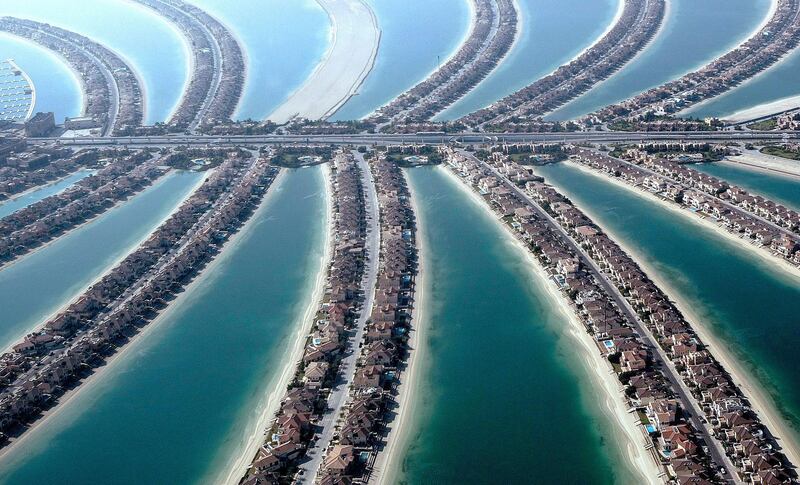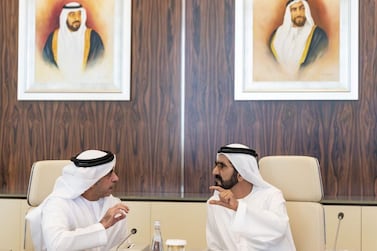With the under-35s accounting for more than half of its population, the Middle East and North Africa region has focused on supporting its youth with education and jobs.
But the UAE – one of the most developed nations in the region – has set itself a new goal: to retain its sizeable cohort of maturing expatriates, who may otherwise take valuable skillsets - and spending power - elsewhere.
Until now, expatriates could only stay in the UAE without a job if they were sponsored by their spouse or other entity, giving them little incentive to retire in the country. Last September, in a ground breaking move, the UAE Cabinet approved legislation to offer retiring residents aged 55 and over special five-year visas, with the option of renewing for a longer period of time if certain criteria are met. The law was scheduled to take effect in 2019, although the government has not specified when.
To apply for the retirement visa, the candidate must have one of the following – an investment in a UAE property worth Dh2 million or more; financial savings of Dh1m or more, or an active income of at least Dh20,000 per month. Around 80 per cent of the UAE’s 9.4 million population are expatriates, according to 2017 statistics.
While the new visa has yet to be introduced, experts say it could stimulate a fresh wave of economic activity in the UAE as businesses, including Abu Dhabi state-owned developer Aldar Properties and HSBC Middle East, seek to cash in on a powerful "silver dollar".
“Globally, the over-50s have a disproportionate amount of wealth because they have known a golden age of economic growth [prior to the two deepest world recessions of 1990 and 2009],” says Meret Gaugler, co-portfolio manager for Swiss private bank Lombard Odier’s (LO) Golden Age funds, which sit within the bank’s investment management division and invest in companies targeting the ageing population.
"The UAE, with its warmer climate, advantageous geography and high per capita wealth, is very well placed to tap into this lucrative market and people are starting to realise that the silver economy could really gain traction here," she tells The National by telephone from Switzerland.
It is early days, and LO’s Golden Age portfolio does not yet invest in any UAE or Middle East-based company, she adds.
The silver economy is the phrase used to describe business activities relevant to the health and consumption needs of older adults. For Ms Meret, interesting companies include those mainly in the health care, financial services and consumer industries. For example: health insurance and medical technology; banks and other institutions with wealth management and diversified wealth planning units; consumer food staples; luxury goods and leisure; and even premium pet food brands.
The silver economy is essentially the world’s third-largest economy after the US and China, projected by Euromonitor to reach €15 trillion (Dh61.81tn) globally by 2020. In America, the over-55s were set to account for 70 per cent of disposable income by 2020, said a 2016 report by market research firm Nielsen.
Within the context of sluggish global gross domestic product growth (projected by the IMF at 3.5 per cent for 2019) in recent years, the over-55s have fared better than other age groups – in the US at least. Their average household income went up by around 75 per cent between 1983 and 2013, according to US data on median household wealth, while that of households headed by the 35 to 40 age bracket halved over the same period.
“Because the over-55s benefited from earlier economic booms they’ve had a buffer,” Ms Meret says. “They are less dependent on underlying economic cycles and are more capable of making steady investments through market ups and downs.”
In the UAE, with its tax-free salaries and – until the oil price fell in 2014 (it has since recovered to around $69 per barrel) – generous housing and schooling packages for expats and their families, the over-55s are even more likely than many other countries to have high disposable incomes and healthy savings and investment pots.
The retirement visa rules have served to “jog people awake” to what could be a rapidly expanding market, according to Ms Meret.
Aldar Properties is one company that sees increased opportunity from the incoming visa policy.
"We are seeing more customers within the older age bracket, whether they are buy-to-let investors or end users, and this segment could gain more traction after the new law is executed," Maan Farid Al Awlaqi, executive director at Aldar Properties, tells The National.
Aldar is not yet contemplating the development of specialist retirement homes for UAE residents as the demographic is too small, he adds. Less than 1 million people in the UAE are estimated to be aged above 55, according to the World Bank.
Nonetheless, the new visa rules are a chance to market Aldar’s existing schemes to a wider client base, boosting sales. “We are always looking to diversify our customer base and many of our schemes, from a quality and lifestyle perspective, are very appropriate for this age bracket,” Mr Al Awlaqi says. “People are living for longer, and they say 60 is the new 30.”
Many of Aldar’s Yas Island villa communities, including Yas Acres and West Yas, with their proximity to leisure and retail facilities and the range of entertainment options including theme parks on offer, would appeal to this demographic or their visiting grandchildren.
Aldar would also look to market its luxury, secluded villas on Saadiyat Island, close to the recently opened Louvre Abu Dhabi and other cultural outposts, to an older generation of UAE investors. “The UAE is not somewhere you would retire to if you have a lower income or lower savings,” Mr Al Awlaqi points out.
HSBC Middle East, a franchise of the global bank, foresees greater take-up of its retirement and wealth planning services as a result of the new visa rules. It expects particular interest in products that reflect retirees' lower risk appetite, Marwan Hadi, UAE head of retail banking and wealth management at HSBC Middle East, tells The National.
“Many expatriates living away from home do not think hard about financial planning for their retirement because they do not expect to retire there, but the new visas could change that,” he says. Just one in four UAE residents are saving for retirement, despite aspiring to live comfortably in old age, according to an HSBC survey in December.
In January, another study by financial services firms Old Mutual International and Quilter Cheviot found that six in 10 UAE residents depend on their end of service gratuity to fund their retirement – a possible concern as most such payments are relatively small, according to Paul Evans, head of MEA region at Old Mutual.
The new visa is therefore a clever move, Mr Hadi says, because it will help the UAE to reduce wealth and population outflows and drive sustainable year-on-year growth.
“By encouraging more people to retire in the UAE, the country can also expect to retain more children of those retirees, with a positive knock-on impact on skills and talent retention,” he says.
For long-term expatriates approaching retirement age, the prospect of obtaining an additional five-year visa to continue their lives in the UAE without work is an appealing prospect.
“Retiring in the UAE would be fantastic for grandparents whose children and grandchildren live in the UAE,” says Sheila Clark, a school administrator in her 50s who has lived with her family in Dubai for almost 25 years and whose children are now pursuing careers outside the country.
“Some expat families have lived here for generations and it’s sad that, previously, families had to split up because of age.”
However, she cautions that the UAE is an expensive country and the visa would appeal predominantly to those who have lived there for a long time and made significant sums of money. “Unless fairly well off, one would need the [financial] support of children or grandchildren to retire here and live comfortably,” she says.
Whatever the initial take-up, the introduction of a formal route to retirement in a maturing and diverse nation such as the UAE is a step forward, and one that could positively influence the country’s economic growth in the years ahead.







